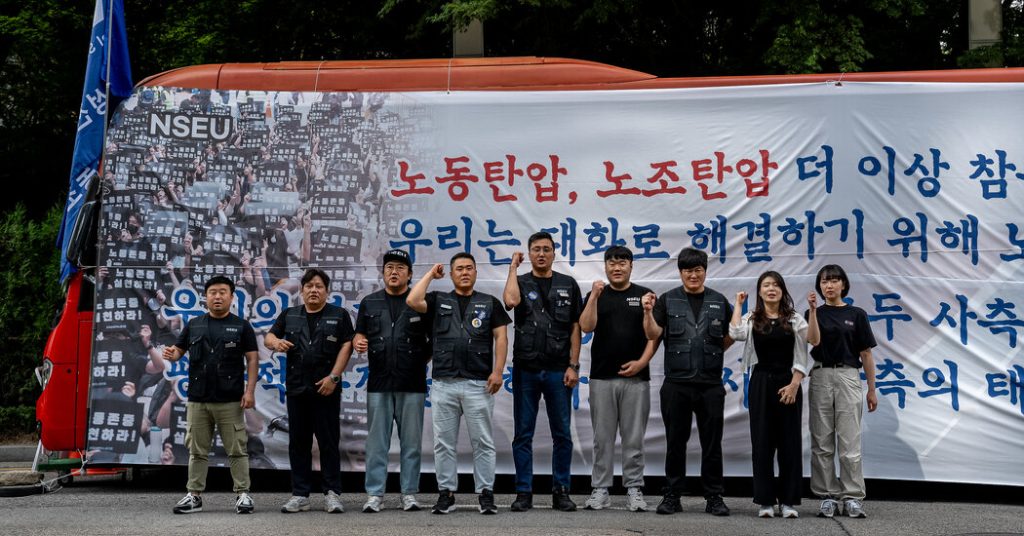Workers at Samsung, the dominant conglomerate in South Korea, recently went on strike for the first time. The strike comes at a time when Samsung Electronics is facing challenges in the memory chip business, crucial for advanced AI systems. Employees in the chip division led the strike due to failed negotiations concerning wage increases and bonuses. The union, representing 28,000 members, voted in favor of a strike as a result of workers not receiving bonuses and feeling undervalued by the company.
The strike was expected to have minimal impact on Samsung’s manufacturing output and was strategically planned between a holiday and the weekend. Despite the strike, Samsung is working to reassure clients and investors about its chip business capabilities in the AI era. While Samsung has been a leader in memory chip production, it has faced competition from rivals like SK Hynix in the high-bandwidth memory chip sector crucial for AI development. Samsung has reported losses in recent quarters but remains a key player in the memory chip market.
Samsung’s chip division leader, Jun Young-hyun, who previously led the company’s overtaking of Intel, is leading efforts to increase high-bandwidth memory chip output to meet growing demand. The company plans significant investments in semiconductor facilities in South Korea and Texas. Samsung is also recovering from legal and leadership challenges, including its chairman, Lee Jae-yong, being acquitted of charges related to a corruption scandal that brought down former President Park Geun-hye. Samsung’s influence in South Korea’s economy and society continues despite ongoing legal issues.
Samsung’s history dates back to 1938 when it was founded as a small shop by Lee Byung-chul. Over the years, Samsung has grown into a global electronics and semiconductor giant, with its influence felt in all sectors of South Korean society. Organized labor movements at Samsung have only gained traction in recent years, with the union representing employees negotiating for fair wages and bonuses. The strike was seen as a message to management about the union’s maturity and willingness to stand up for worker rights.
Labor unrest is not uncommon in South Korea, with various sectors experiencing strikes and protests in recent months. Samsung, historically a company known for its anti-union stance, has seen a shift in recent years as unions have become more organized within the company. The strike by Samsung workers is part of a larger trend of labor activism in South Korea, with workers seeking fair treatment and representation. The union is prepared to take further action if necessary to ensure that worker demands are met and that they are treated fairly by the company.


